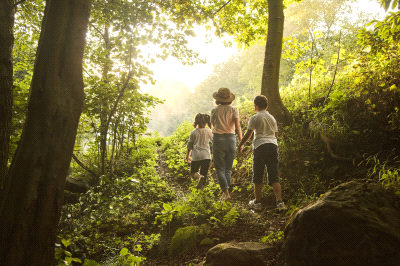Balda Monastery-Kaghu Waterfall Eco-Educational Trail
Posted by : GEadmin@ecotournet.net on 20.May.21
Last update by : GEadmin@ecotournet.net on 28.Oct.21
Balda Monastery-Kaghu Waterfall Eco-Educational Trail
Length: 3.4 Kilometres
About 1 hour at an average pace
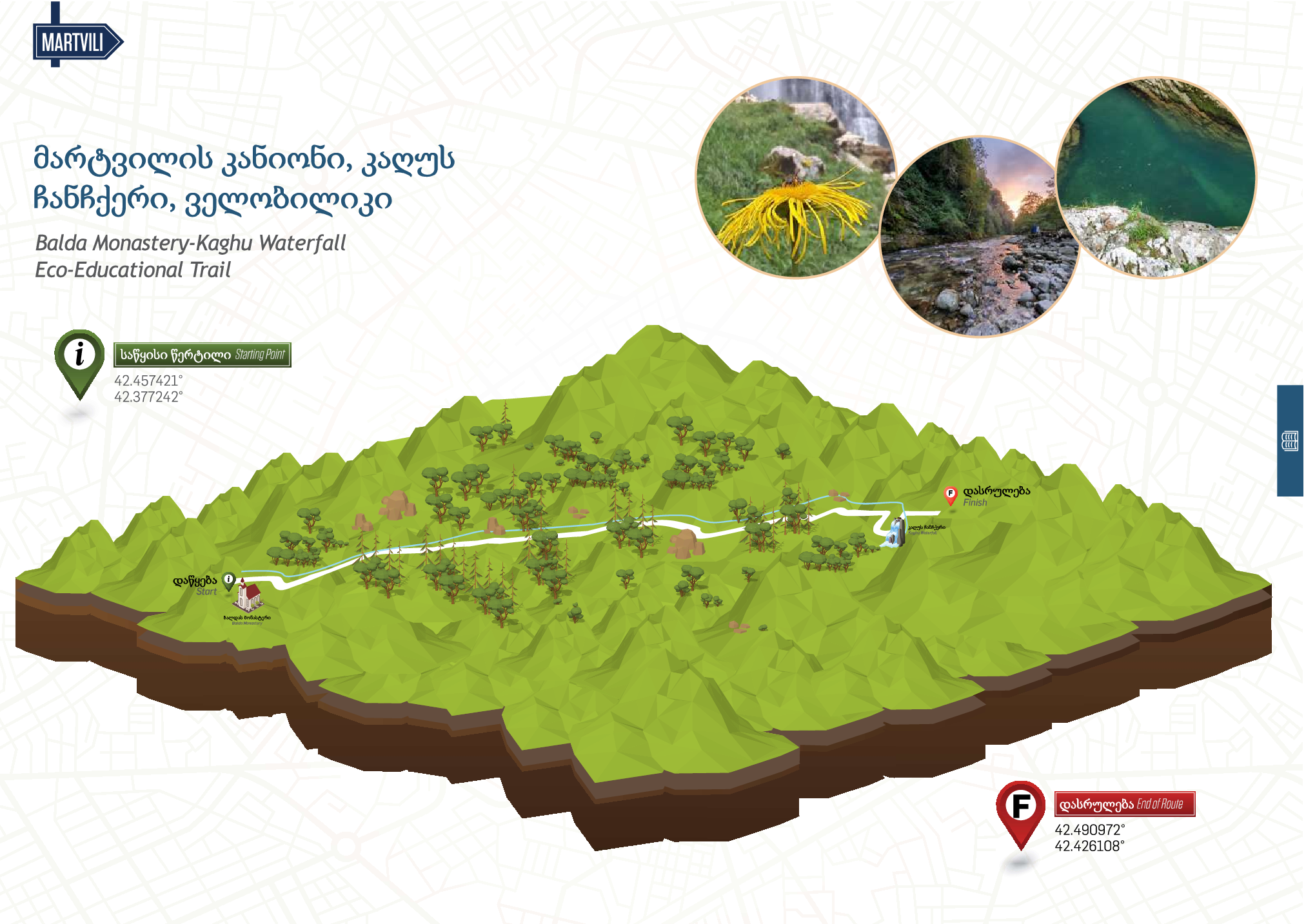
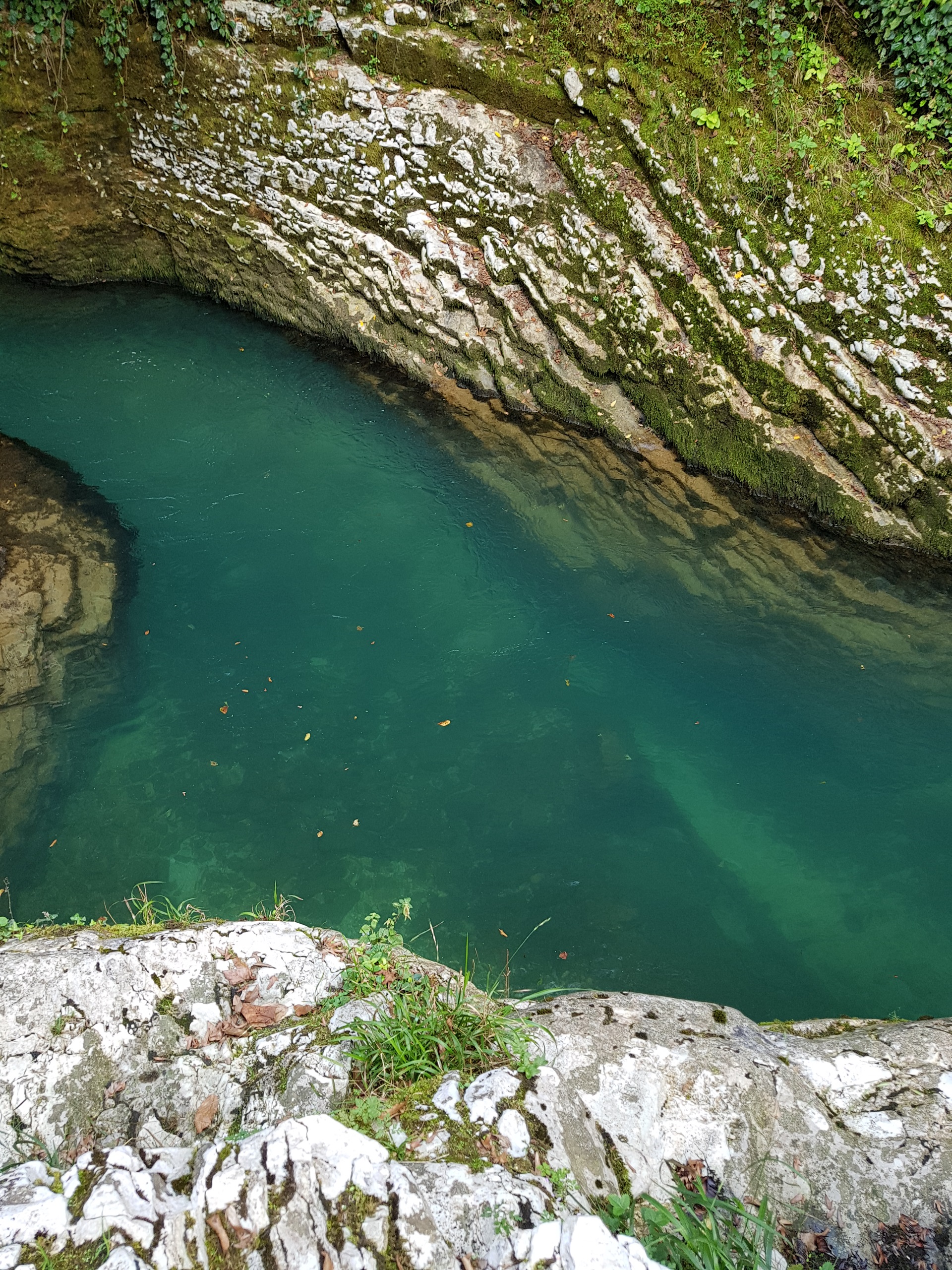
Balda Monastery-Kaghu Waterfall Eco-Educational Trail
Sightseeing: Balda Monastery > Balda Canyon Natural Monument > Kaghu Waterfall.
Municipality: Martvili.
Recommended time for travel: March-November.
Type: Hiking trail.
Difficulty: Easy.
Length: 3.4 km from Balda Monastery to Kaghu Waterfall.
Estimated time of travel: 1 hour.
Minimum/maximum/average height: 319/368/345 meters above sea level.
Total length of uphill/downhill: 245/247 meters.
Coverage of cellular network: Available in most zones.
Availability of drinking and technical water: one spring is located on the trail.
Remarks: Visitors of the trail you visit the Balda Canyon Natural Monument, which is a protected area. When moving on the territory of the protected area, it is necessary to follow the rules of conduct.
Description: The main sightseeing of the eco-educational trail are Balda Monastery, Virgin Mary Church, Balda Canyon, Kaghu Waterfall and river Abasha. Visitors of the trail will receive information on the historic and cultural monument, which is a frequently visited place in the Martvili municipality. During visiting the ecoeducational trail, it will be possible to see the Balda Canyon Natural Monument, which is an important eco-educational site.
The canyon is formed by Abasha in the southern part of the Askhi, in the limestone rocks. The canyon is about 1,400 meters long, 5-10 meters wide, with an average depth of 25-30 meters. The canyon is unique, both in terms of its biodiversity, as well as its sightseeing. After visiting the canyon and getting the information, the road continues to Kaghu Waterfall, which is located on the river Abasha’s side. On the trail there will be a section, where the visitors can stop and receive environmental information and increase their awareness. In 150 meters north of Kaghu Waterfall there is a crossing of river Abasha and river Toba, where increasing awareness of visitors on hydrological issues is possible.

The first selected eco-education trail, which is designed for schoolchildren, is located near the village of Balda, in the municipality of Martvili. The starting point of the trail is Balda Monastery and it follows a road along the river Abasha. The final destination is a confluence of river Toba near Kaghu (Zhuzha) Waterfall.
The total length of the trail, which includes hiking from Balda Monastery to Kaghu Waterfall and back, to Bald Monastery is 3.4 kilometers. Minimum elevation of the trail is 319 meters, while the maximum is 368 meters. An average altitude is 345 meters above sea level. The average inclination of the trail is 12.3%. The main sightseeing of the eco-educational trail are Balda Monastery, Virgin Mary Church, Balda Canyon, Kaghu Waterfall and river Abasha.
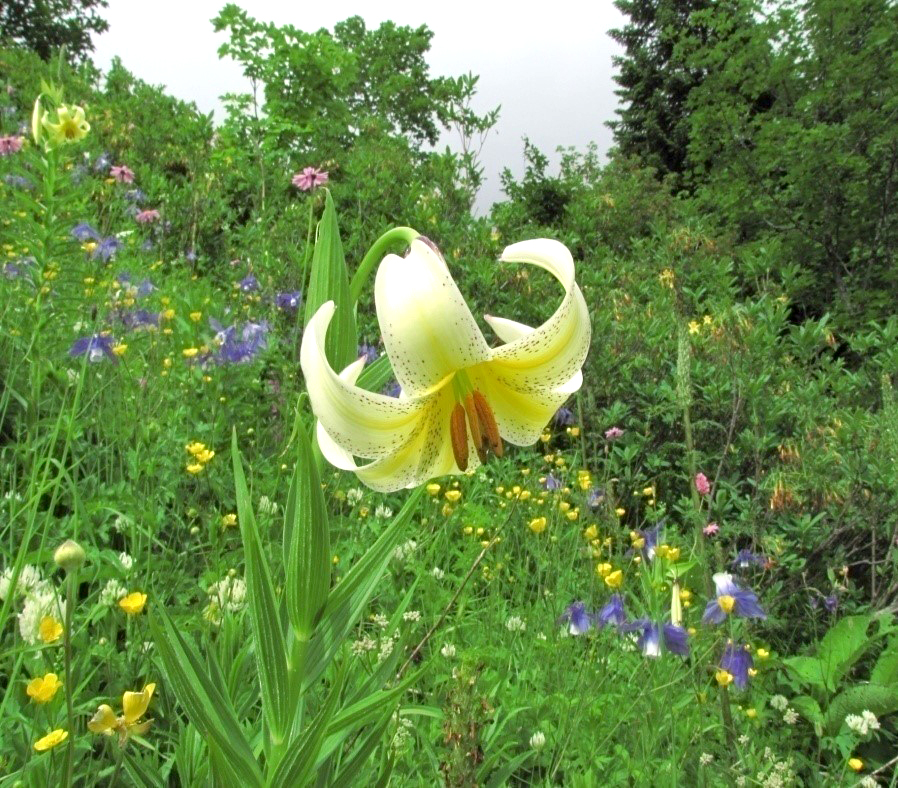
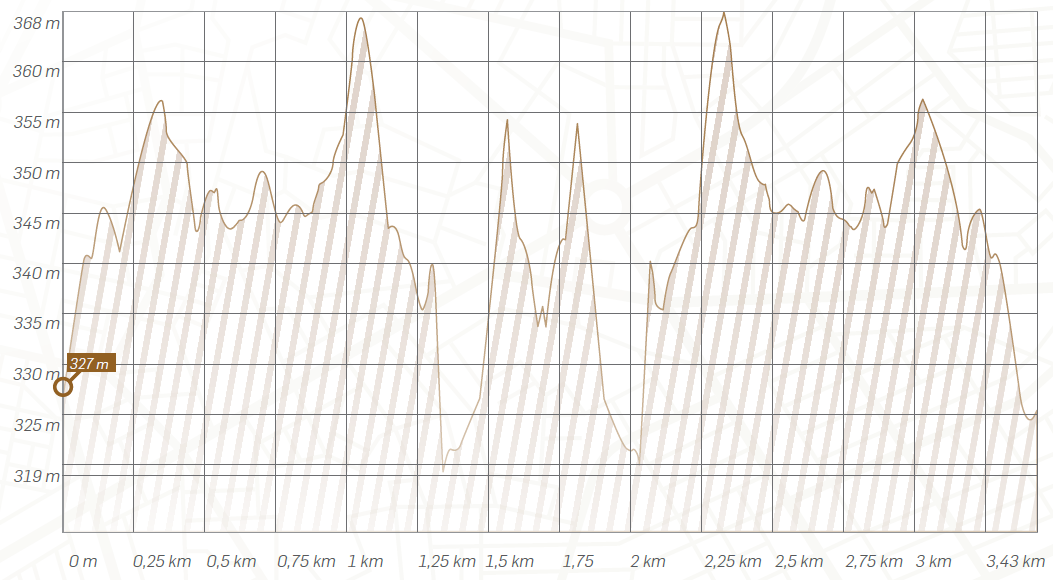
Visitors of the trail will receive information on the historic and cultural monument, which is a frequently visited place in the Martvili municipality. During visiting the eco-educational trail, it will be possible to see the Balda Canyon Natural Monument, which is an important eco-educational site.
The canyon is formed by Abasha in the southern part of the Askhi, in the limestone rocks. The canyon is about 1,400 meters long, 5-10 meters wide, with an average depth of 25-30 meters. The canyon is unique, both in terms of its biodiversity, as well as its sightseeing.
After visiting the canyon and getting the information, the road continues to Kaghu Waterfall, which is located on the river Abasha’s side. On the trail there will be a section, where the visitors can stop and receive environmental information and increase their awareness. In 150 meters north of Kaghu Waterfall there is a crossing of river Abasha and river Toba, where increasing awareness of visitors on hydrological issues is possible.
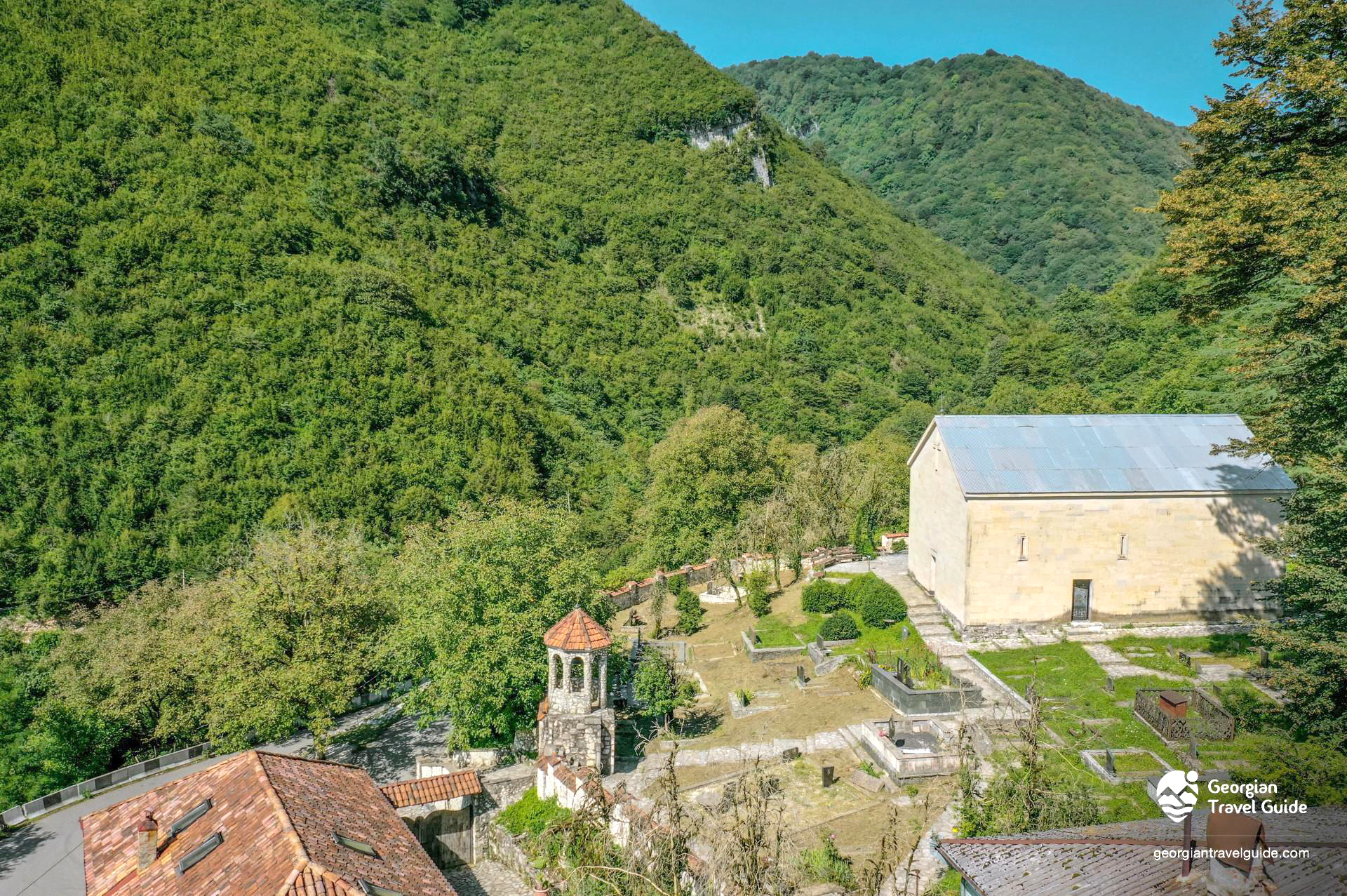
Balda-Kagu Eco-Educational Route
Eco-camps for youth are often organized here. This rout might be used for the eco-camps participants. The program of the eco-camp covers cultural and natural components of the local areas as well. In this case the ecological educational subjects include description of the composition of ecosystem’s main elements with explanation of the habitats of local flora and fauna species.
The program of the rout includes the local landscapes and the interactions of the biotic and abiotic factors of the ecosystem of exploring rout areas. At the same time the eco camps participants will receive the knowledge on sustainable usage of the natural resources during the hiking the eco educational rout, also about protection of the wild nature and saving the monuments of nature.

Interactive Map
See More
